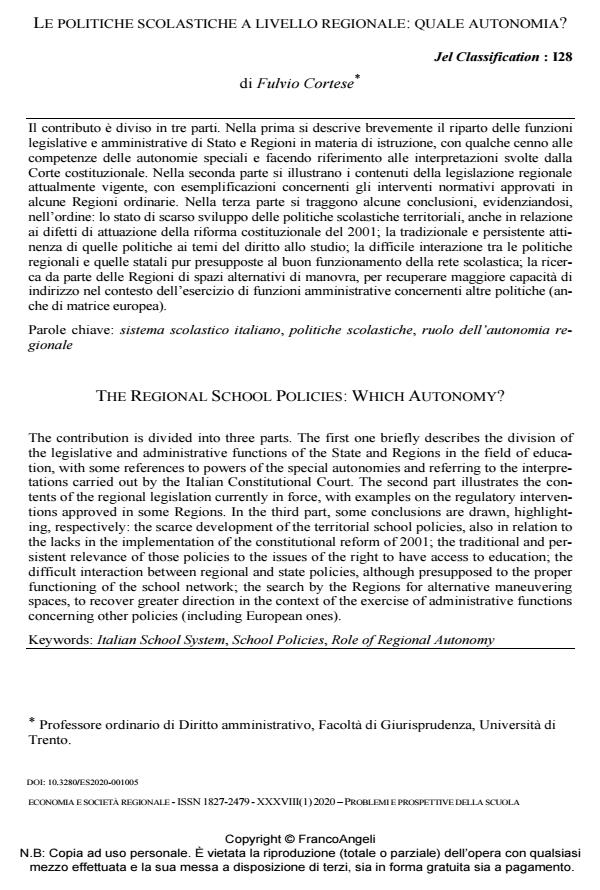The regional school policies: which autonomy?
Journal title ECONOMIA E SOCIETÀ REGIONALE
Author/s Fulvio Cortese
Publishing Year 2020 Issue 2020/1
Language Italian Pages 10 P. 79-88 File size 220 KB
DOI 10.3280/ES2020-001005
DOI is like a bar code for intellectual property: to have more infomation
click here
Below, you can see the article first page
If you want to buy this article in PDF format, you can do it, following the instructions to buy download credits

FrancoAngeli is member of Publishers International Linking Association, Inc (PILA), a not-for-profit association which run the CrossRef service enabling links to and from online scholarly content.
The contribution is divided into three parts. The first one briefly describes the division of the legislative and administrative functions of the State and Regions in the field of education, with some references to powers of the special autonomies and referring to the interpretations carried out by the Italian Constitutional Court. The second part illustrates the contents of the regional legislation currently in force, with examples on the regulatory interventions approved in some Regions. In the third part, some conclusions are drawn, highlighting, respectively: the scarce development of the territorial school policies, also in relation to the lacks in the implementation of the constitutional reform of 2001; the traditional and persistent relevance of those policies to the issues of the right to have access to education; the difficult interaction between regional and state policies, although presupposed to the proper functioning of the school network; the search by the Regions for alternative maneuvering spaces, to recover greater direction in the context of the exercise of administrative functions concerning other policies (including European ones).
Keywords: Italian School System, School Policies, Role of Regional Autonomy
Jel codes: I28
Fulvio Cortese, Le politiche scolastiche a livello regionale: quale autonomia? in "ECONOMIA E SOCIETÀ REGIONALE " 1/2020, pp 79-88, DOI: 10.3280/ES2020-001005